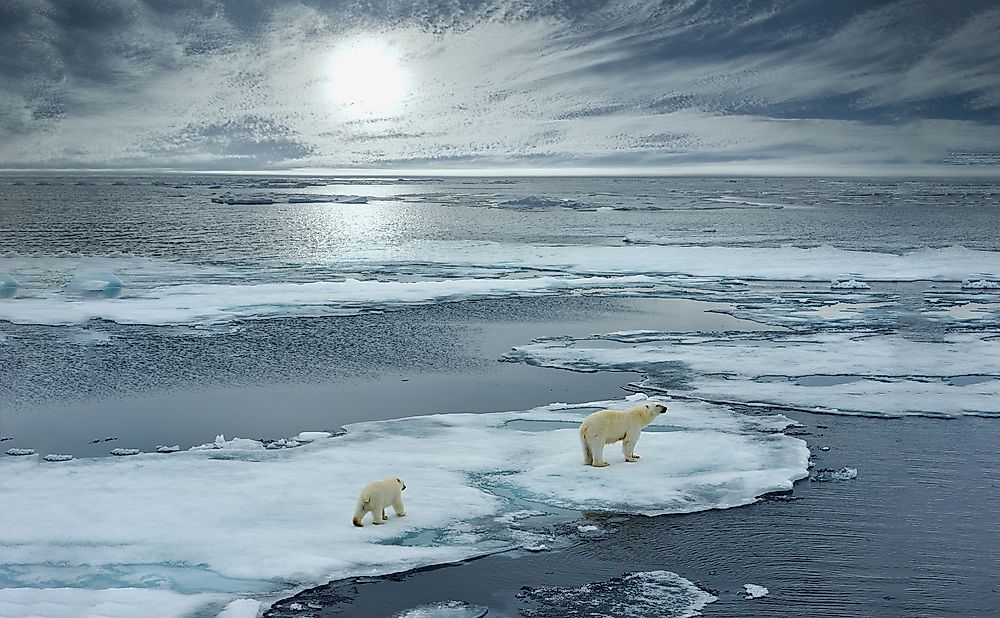The arctic ocean might be the world s smallest oceans but it is still around 5 4 million square miles 14 million sq km or 1 5 times as large as the united states

The Arctic Ocean: A Mighty Giant in a Compact Size
Located in the northernmost part of our planet, the Arctic Ocean may be the smallest of the world’s oceans, but it is by no means insignificant. This vast body of water stretches across approximately 5.4 million square miles (14 million sq km), which is about 1.5 times the size of the United States. Let’s dive deeper into the wonders of this unique and mesmerizing Arctic realm.
The Arctic Ocean is encircled by the coastlines of several countries, including Canada, Greenland, Russia, the United States, and Norway. It is mainly covered by ice, with the frozen and shifting sea ice acting as both a barrier and an opportunity for exploration. Its icy expanse is home to various remarkable features and ecosystems, functioning as a vital part of Earth’s climate system.

One fascinating aspect of the Arctic Ocean is its unique and fragile ecosystem. Despite the harsh and extreme conditions, this ocean teems with life. The frigid waters are home to a diverse array of marine creatures, including polar bears, walruses, seals, whales, and various fish species. These incredible organisms have adapted to survive in the cold, making the Arctic Ocean a truly remarkable and biodiverse habitat.
Beyond its biological richness, the Arctic Ocean plays an essential role in global weather patterns and the regulation of Earth’s climate. The sea ice covering vast sections of the ocean reflects sunlight back into space, helping to regulate the planet’s temperature. Additionally, the ocean currents within the Arctic help distribute heat throughout the world, influencing weather patterns on a global scale.
One of the most significant environmental concerns related to the Arctic Ocean is its vulnerability to climate change. As our planet warms, the Arctic is experiencing dramatic reductions in sea ice extent and thickness. These changes not only affect the fragile ecosystem and its inhabitants but also have far-reaching consequences for global climate stability.
The melting Arctic sea ice has opened up new possibilities for maritime transportation and access to natural resources. As a result, there has been an increased interest in exploring and exploiting the region’s potential economic opportunities. However, it is crucial to balance development with sustainable practices to minimize harm to the fragile Arctic environment.
In conclusion, the Arctic Ocean may be the smallest of the world’s oceans, but its significance extends far beyond its compact size. The Arctic Ocean’s unique ecosystem, climate-regulating capabilities, and vulnerability to climate change make it a vital component of our planet’s delicate balance. By understanding and preserving this magnificent ocean, we can ensure a sustainable future for our planet and all its inhabitants.
Sources:
Tags
Share
Related Posts
Quick Links
Legal Stuff

